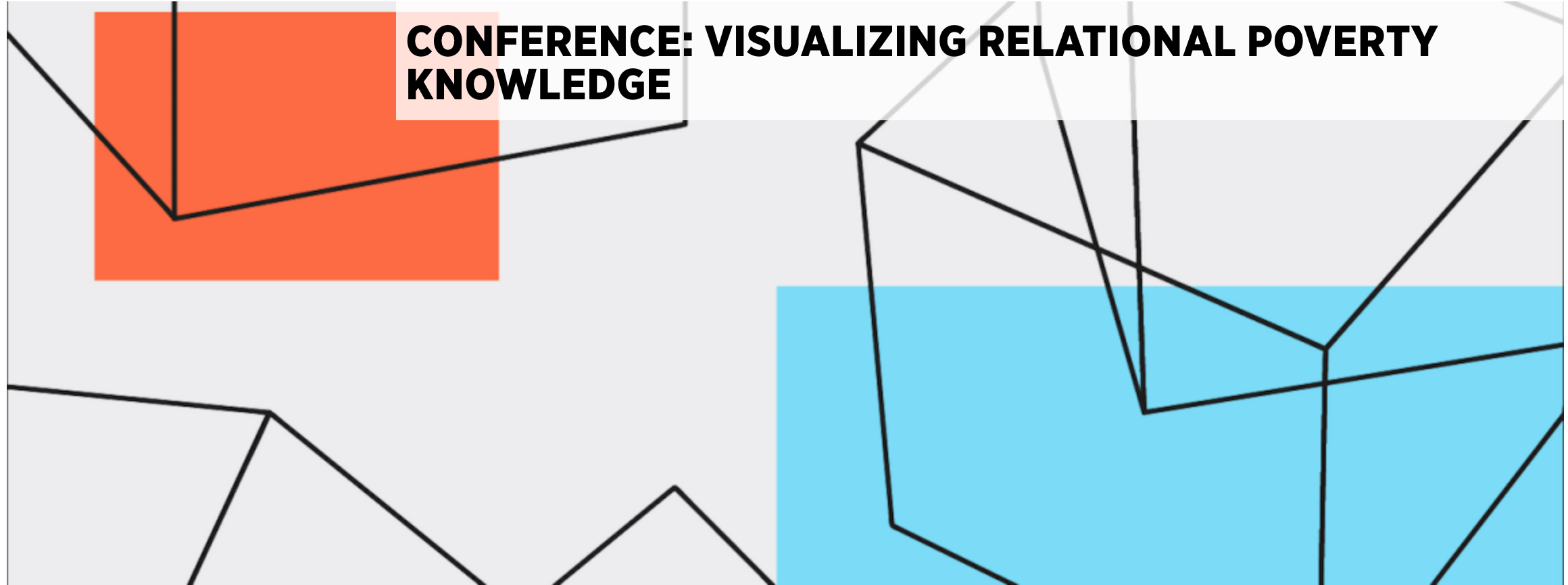Seattle Public Library
1000 4th Ave, Seattle WA 98104
This event is free.
Visualizing Relational Poverty Knowledge is an audience-participatory discussion between activists, artists, and designers to engage economic and racial justice through visual, spatial, and structural storytelling. Relational poverty knowledge shifts the focus on “the poor” to the larger forces of power and privilege that maintain and reinforce poverty. We will investigate this year’s festival theme ‘Design Change’ by conceptualizing how to make visible the often-invisible power relations that produce and reinforce structural inequalities.
Panelists:
Victoria A. Lawson is Professor of Geography at the University of Washington and Director of the University Honors Program; co-Director of the Relational Poverty Network with Prof. Sarah Elwood; former Chair of the Geography Department; Past-President of the Association of American Geographers (AAG); she has been recognized with the Marsha Landolt Distinguished Graduate Mentor Award and the UW Distinguished Teaching Award. Her theoretical and empirical work is broadly concerned with the social and economic effects of global economic restructuring across North and South America, linking relational poverty studies and feminist care ethics to understand impoverishment and inequality. Dr. Lawson’s research is funded by the National Science Foundation, the Ford Foundation and the Department of Education and she served on the National Academies Study Committee on Strategic Directions for the Geographical Sciences.
Sarah Elwood is professor of Geography at the University of Washington and co-founder of the Relational Poverty Network with Victoria Lawson. Her research contributes to relational poverty studies, urban geography, critical digital geographies, and mixed/visual methods. She is co-editor of Qualitative GIS (Sage, with Meghan Cope) and Crowdsourcing Geographic Knowledge (Springer, with Daniel Sui and Michael Goodchild), and her writing has appeared in Annals of the Association of American Geographers, Transactions of the IBG, cultural geographies, and others.
Satpreet Kahlon was born in India, raised in Chicago, and received her BFAs (Studio Art and Art Education) from Michigan State University in 2011. Her work has since then been exhibited extensively, most recently with a solo exhibition at METHOD Gallery in Seattle, WA. Satpreet has been the recipient of many awards, including the ArtBridge Fellowship from Pratt Fine Arts Center. She currently lives in Seattle, where she combines her love for art and social justice by running youth programming in partnership with the Seattle Art Museum.
Suzanne Morlock is an artist and social interventionist who entices human compassion via multidisciplinary works which expose narratives of vulnerability, dissecting and recombining sensory elements with a wry wit and a steady eye. Influenced by early training in Los Angeles and later the rural surroundings of Northwestern Wyoming, Morlock currently seeks inspiration from the Pacific Northwest. Morlock engages with stories of place, context and humanity. Morlock maintains an active schedule seeking primarily experimental settings for her increasingly site specific work. She has exhibited throughout the US and the world beyond. Morlock studied fine art at UCLA and holds a Bachelor of Art degree from California State University, Northridge Additionally Morlock holds a master degree in Landscape Architecture from California State Polytechnic University, Pomona, and a Master of Fine Arts in Studio Arts from Johnson State College/Vermont Studio Center in Johnson, Vermont.
Natasha Marin is a conceptual artist with proven expertise in the arena of digital engagement. Her latest project, Reparations launched on Facebook in mid-July 2016 and has since received local, national, and international media attention. She is a mother, a published writer, and citizen of three countries. Her greatest hope and intention is to bring about substantive positive change through conscious acts of solidarity.
Tim Stewart-Smith is a Seattle based artist who utilizes text as his primary medium for creating performances and installations. His most recent work Awaiting Oblivion—Temporary Solutions for surviving the dystopian future we find ourselves within at present will premiere at On the Boards in February of 2017. In collaboration with his creative partner Jeffrey Azevedo, Tim has presented installations at Lo-fi arts Festival at Smoke Farm, Erasure curated by Lion’s Main Art Collective, On the Boards, Risk/Reward (PDX), Fresh Oysters Performance Research (MSP), Velocity Dance Center and the Seattle Center Next50, among others. Tim is also a street outreach worker and has been working with homeless youth for the past eight years.

